Porsche Panamera Turbo Sport Turismo: the future of hybrid design?
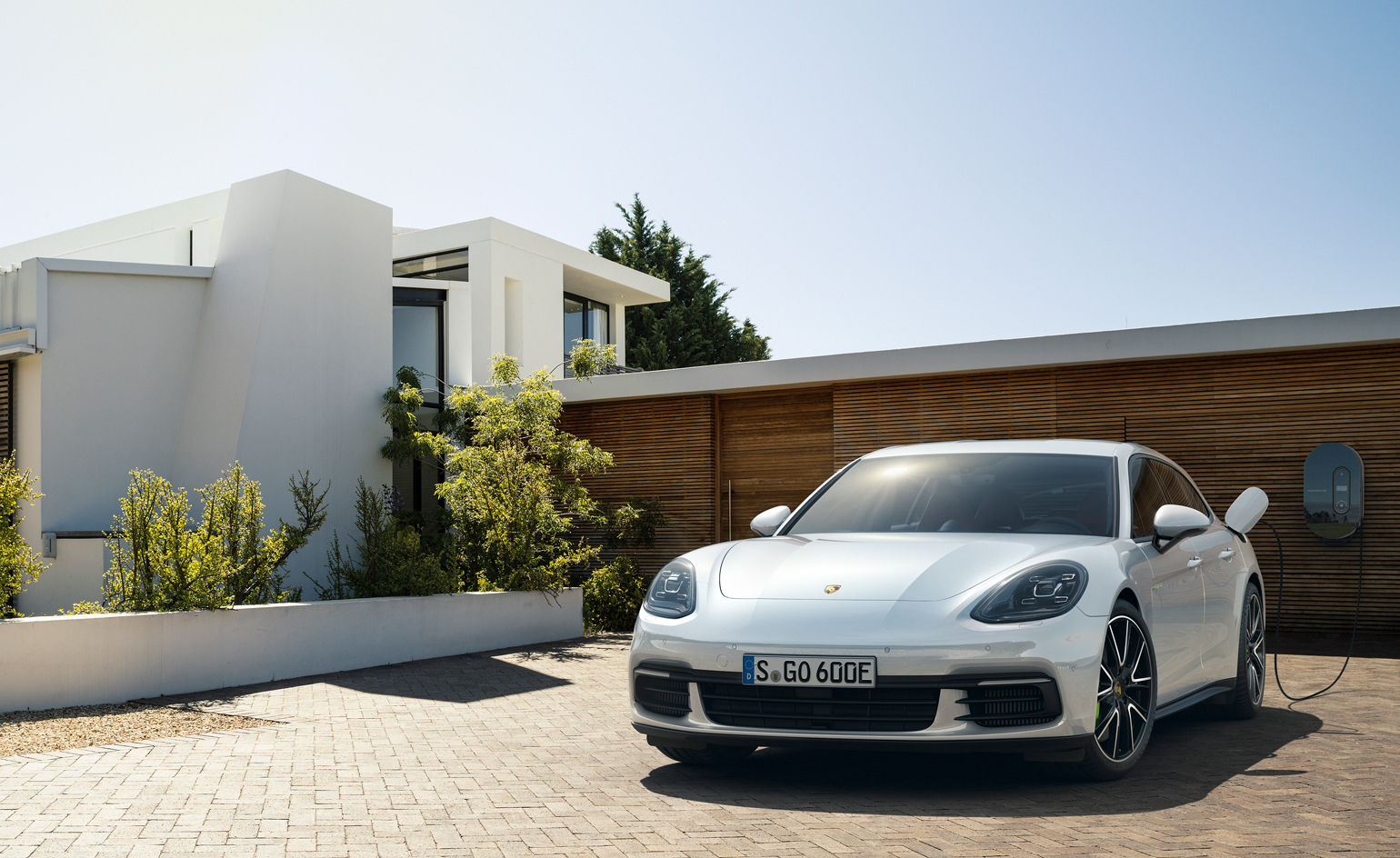
What price innovation? If we were tasked with drawing up a dream specification for a contemporary car, chances are that the Porsche Panamera Turbo S E-Hybrid Sport Turismo would come very close to ticking every box on a very long wishlist. Few motor cars can claim to be quite a complex as this mighty new machine from the legendary Stuttgart manufacturer, a company founded around the celebration and deployment of rigorous engineering. The Sport Turismo is the big booted version of Porsche’s four-door saloon, a model that’s always teetered on the brink of irrelevance, stranded as it is between the company’s famous line-up of two-door sports cars, the 911, Cayman and Boxster, and the profitable and big-selling Macan and Cayenne SUVs. The Panamera is the best of both worlds, offering space and pace, albeit without the grace of the former or the genuine utility of the latter.
Instead, the company has chosen the model to be its technological tour-de-force, the platform on which it debuts the newest drivetrain and in-car technology. The Panamera Turbo S E-Hybrid Sport Turismo is the summit of the company’s current achievement, mating a hugely sophisticated plug-in hybrid drivetrain with its most ferocious twin turbo-charged V8. The combination required hugely complex engineering but the end result is seamlessly satisfying. With space for five adults and their luggage – thanks to the extended Sport Turismo bodyshape, almost like a cut-down estate car – the 5m-long Panamera will hit 62mph in just 3.4 seconds and best 190mph on the autobahn. It will also waft along in blissful silence for 22 miles, using pure electric power alone, with batteries that can be topped up at a charge point or simply by using power siphoned off its regenerative braking system.
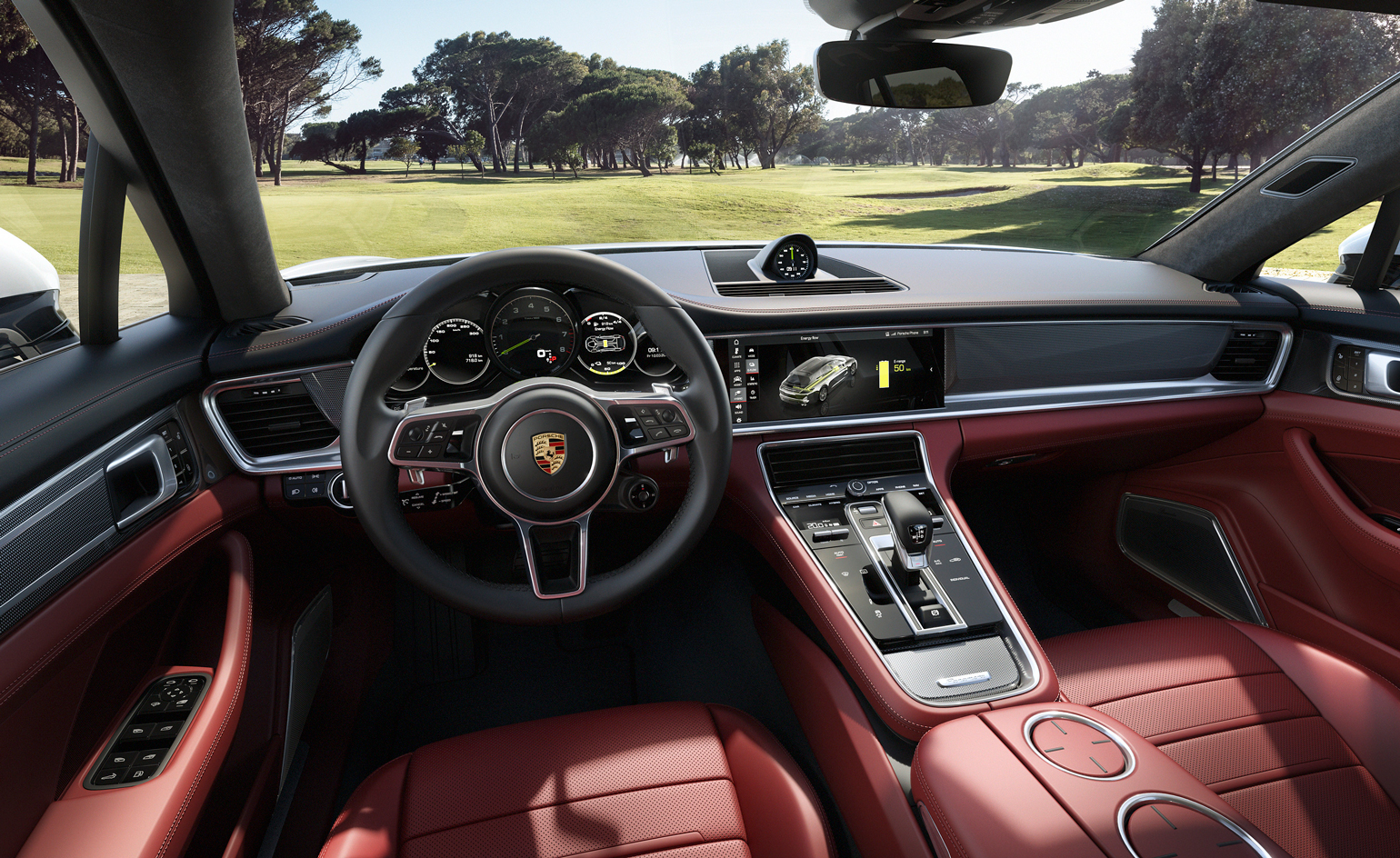
If the internal combustion engine is going to survive as an object of intrinsic desire, then a car like this is surely the purest indication of the future. The Panamera’s EV mode lets it slip unaccosted into urban centres and loiter guilt-free in traffic. The space on offer suggests a multiplicity of uses, while the interior cabin quality, switchgear and infotainment system are amongst the very best you can buy. This is a car to love for its all-round ability, not its devastating good looks (which are very much a matter of taste), nor its lithe dynamics (it handles beautifully for such a big car, but is unsurprisingly no match for a 911 or Cayman).
The Panamera E-Hybrid is pitched at pioneering Silicon Valley types, people for whom a Tesla is too much of a cliché but who still want to eschew the old world symbolism of a conventional car without having to give up the fabled Porsche badge. But the cutting edge moves fast. The forthcoming Mission E – freshly christened the Porsche Taycan in advance of sales starting in 2019 – will surely wrest the lion's share of sporting saloon sales away from its more conventional sibling. The Taycan is at the vanguard of the change sweeping through the industry, a pure electric machine backed up with a new network of fast-charging stations. When it arrives, there's every chance that the Panamera will be allowed to slip quietly into oblivion, mission accomplished. For now, it offers a window into the future without completely cutting links with the past.
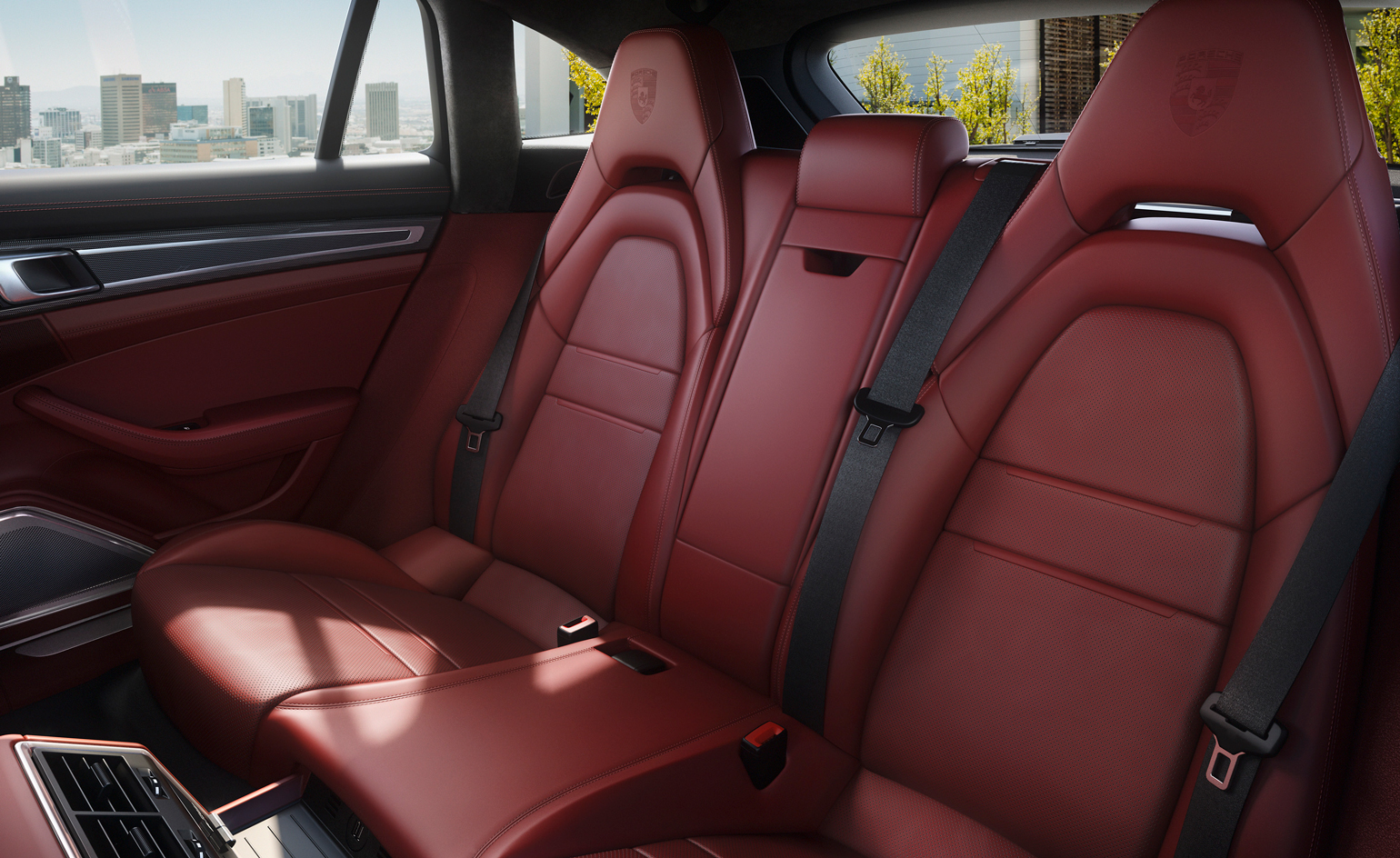
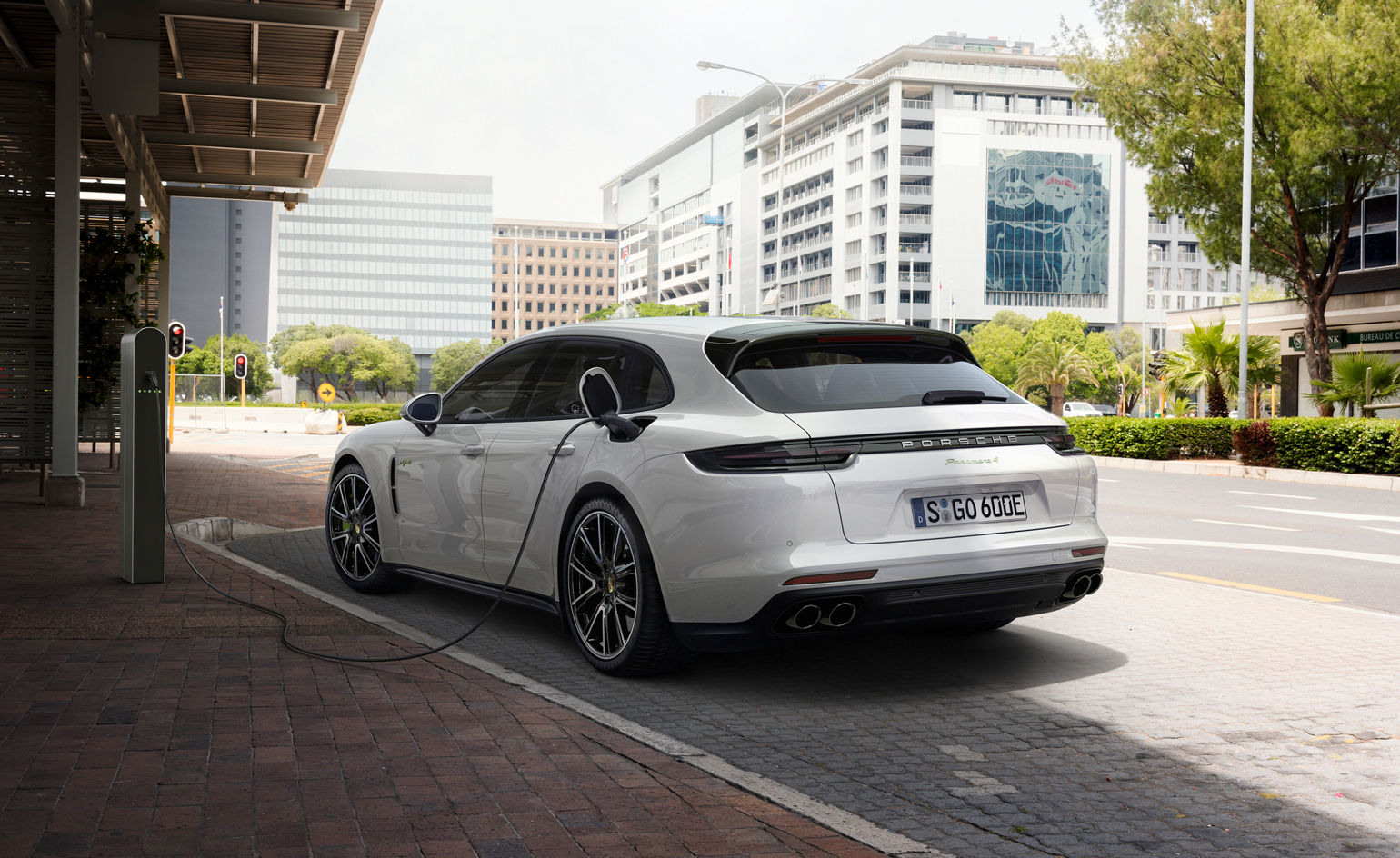
INFORMATION
Porsche Panamera Turbo S E-Hybrid Sport Turismo, price as tested £157,370. For more information, visit the Porsche website
Wallpaper* Newsletter
Receive our daily digest of inspiration, escapism and design stories from around the world direct to your inbox.
Jonathan Bell has written for Wallpaper* magazine since 1999, covering everything from architecture and transport design to books, tech and graphic design. He is now the magazine’s Transport and Technology Editor. Jonathan has written and edited 15 books, including Concept Car Design, 21st Century House, and The New Modern House. He is also the host of Wallpaper’s first podcast.
-
 Meet the Turner Prize 2025 shortlisted artists
Meet the Turner Prize 2025 shortlisted artistsNnena Kalu, Rene Matić, Mohammed Sami and Zadie Xa are in the running for the Turner Prize 2025 – here they are with their work
By Hannah Silver
-
 Take a rare chance to see the astonishing Ringier Collection of artworks in Düsseldorf
Take a rare chance to see the astonishing Ringier Collection of artworks in DüsseldorfFrom Barbara Kruger to Sylvie Fleury: publishing mogul Michael Ringier opens his private art collection to the public, sharing 500 works, and tells us what makes great art
By Harriet Quick
-
 Willo Perron on his sound-inspired collaboration with Vans at Milan Design Week: ‘does frequency have an architecture?’
Willo Perron on his sound-inspired collaboration with Vans at Milan Design Week: ‘does frequency have an architecture?’Launching Vans’ Old Skool 36 FM sneaker, the Willo Perron-designed installation at Milan Design Week 2025 was inspired by the invisible architecture of sound
By Simon Mills
-
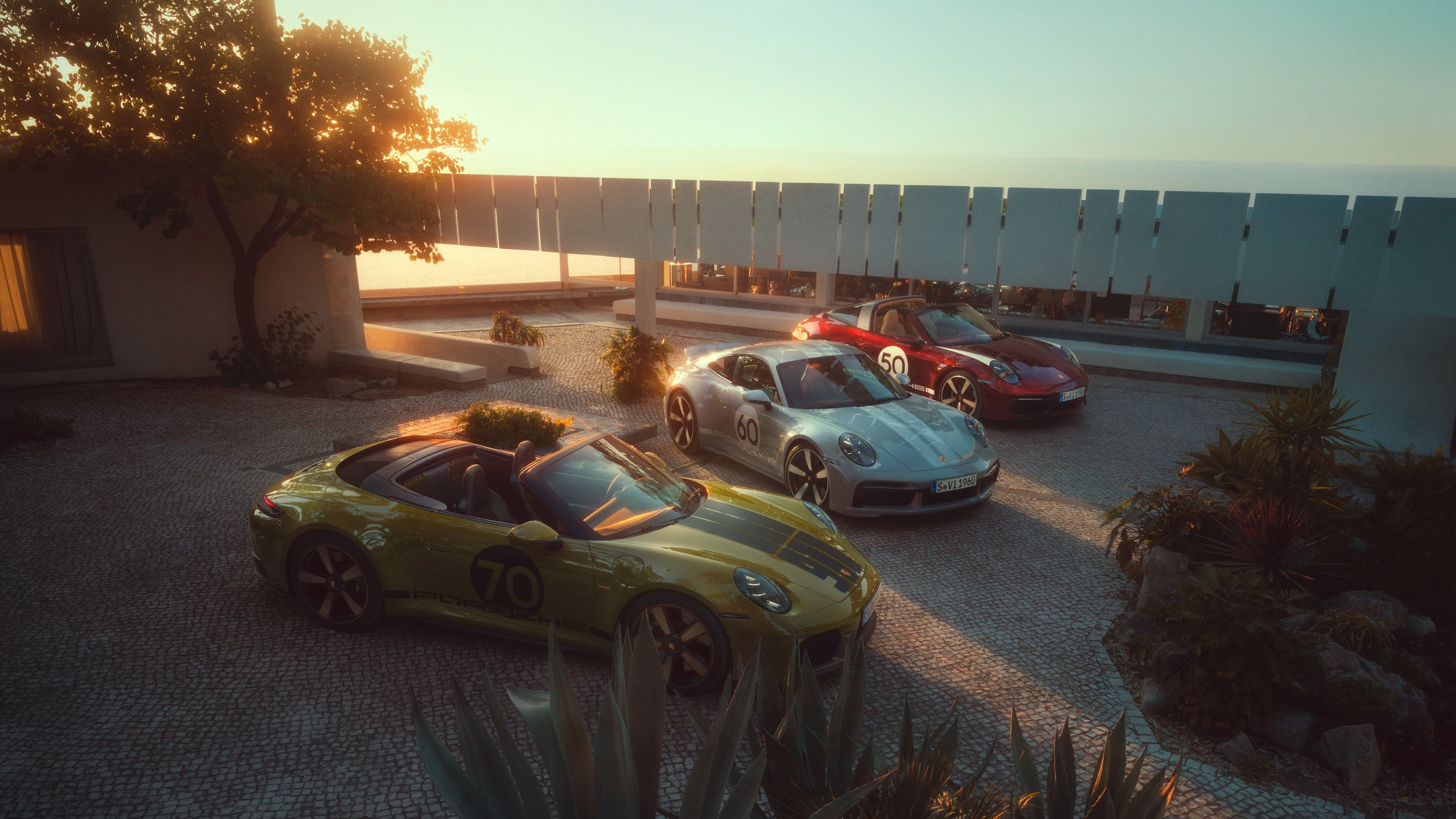 The Porsche 911 Spirit 70 harks back to the aesthetic and ethos of the 1970s
The Porsche 911 Spirit 70 harks back to the aesthetic and ethos of the 1970sAs part of Porsche’s Heritage Design strategy, the company has launched a new special edition, the Porsche 911 Spirit 70 convertible
By Jonathan Bell
-
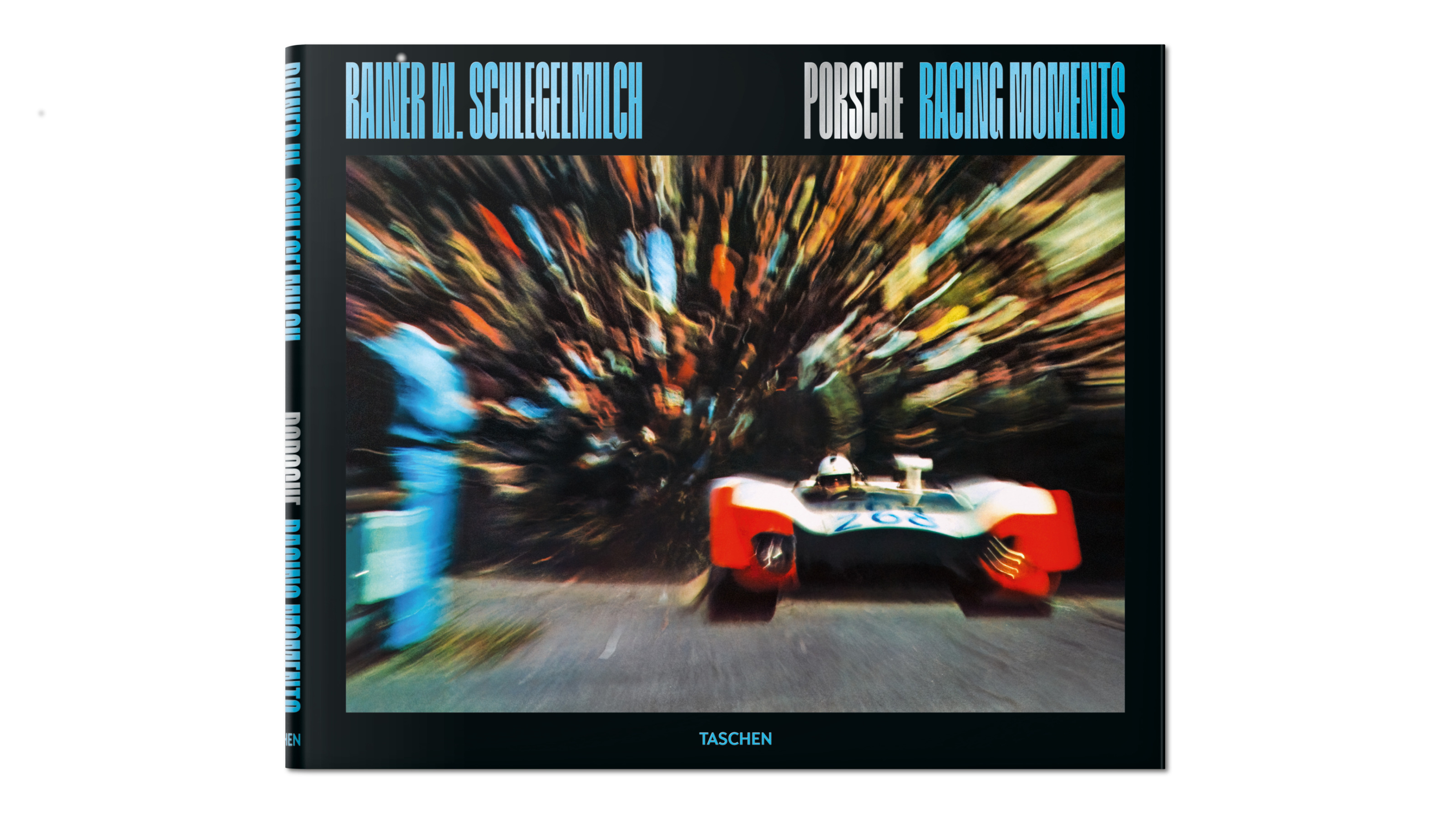 Rainer W. Schlegelmilch's Porsche photography showcases the aesthetics of speed
Rainer W. Schlegelmilch's Porsche photography showcases the aesthetics of speedTaschen's new edition of Rainer W. Schlegelmilch’s collected imagery from a quarter of a century spent following Porsche racing highlights historical machines, emotive camera technique and major moments on the track
By Jonathan Bell
-
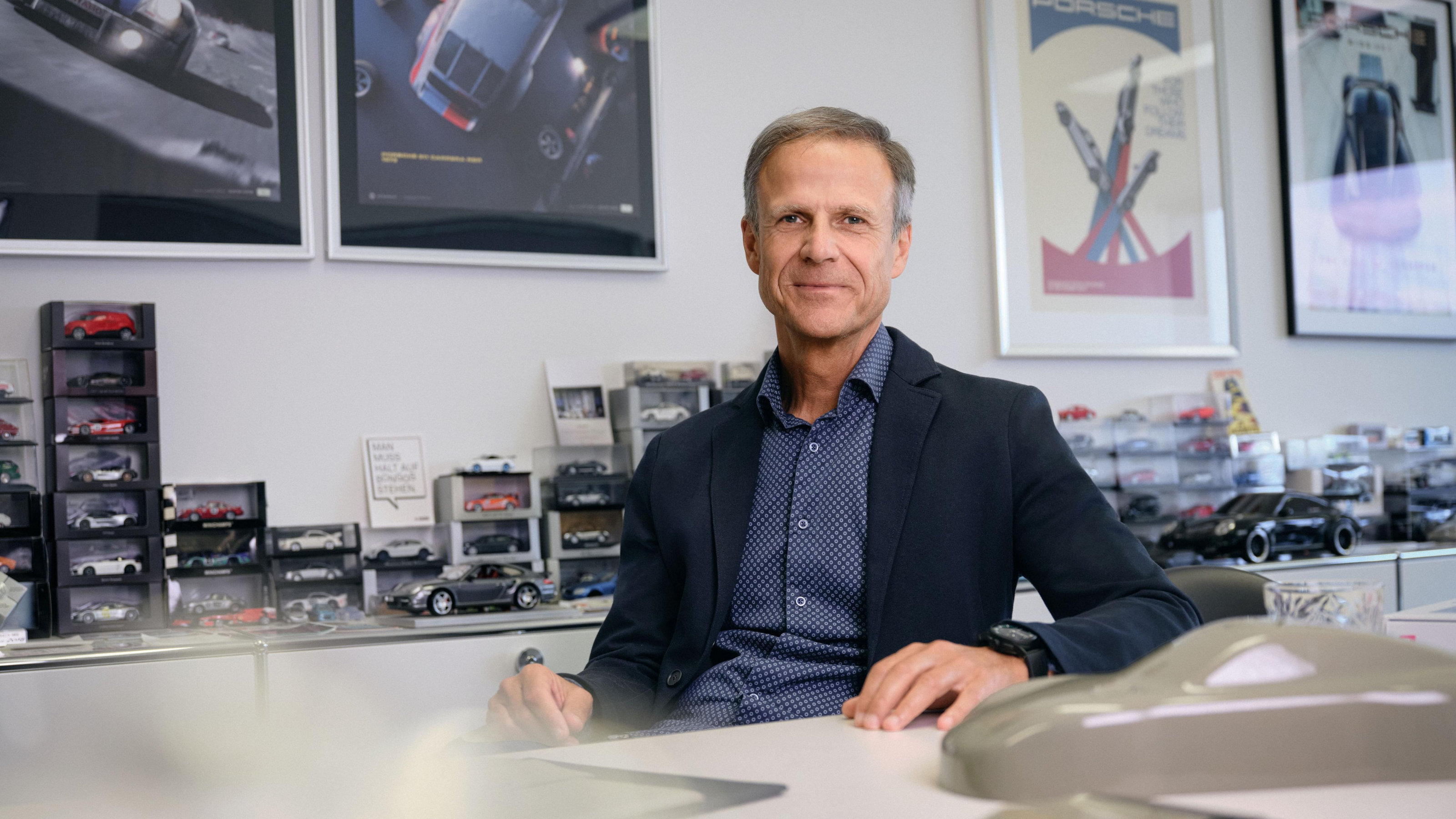 Michael Mauer on two decades at the helm of Porsche’s design
Michael Mauer on two decades at the helm of Porsche’s designPorsche’s signature style has diversified in recent years, thanks to the design leadership of Michael Mauer. We caught up with him to reflect on his 20 years in the hot seat
By Rory FH Smith
-
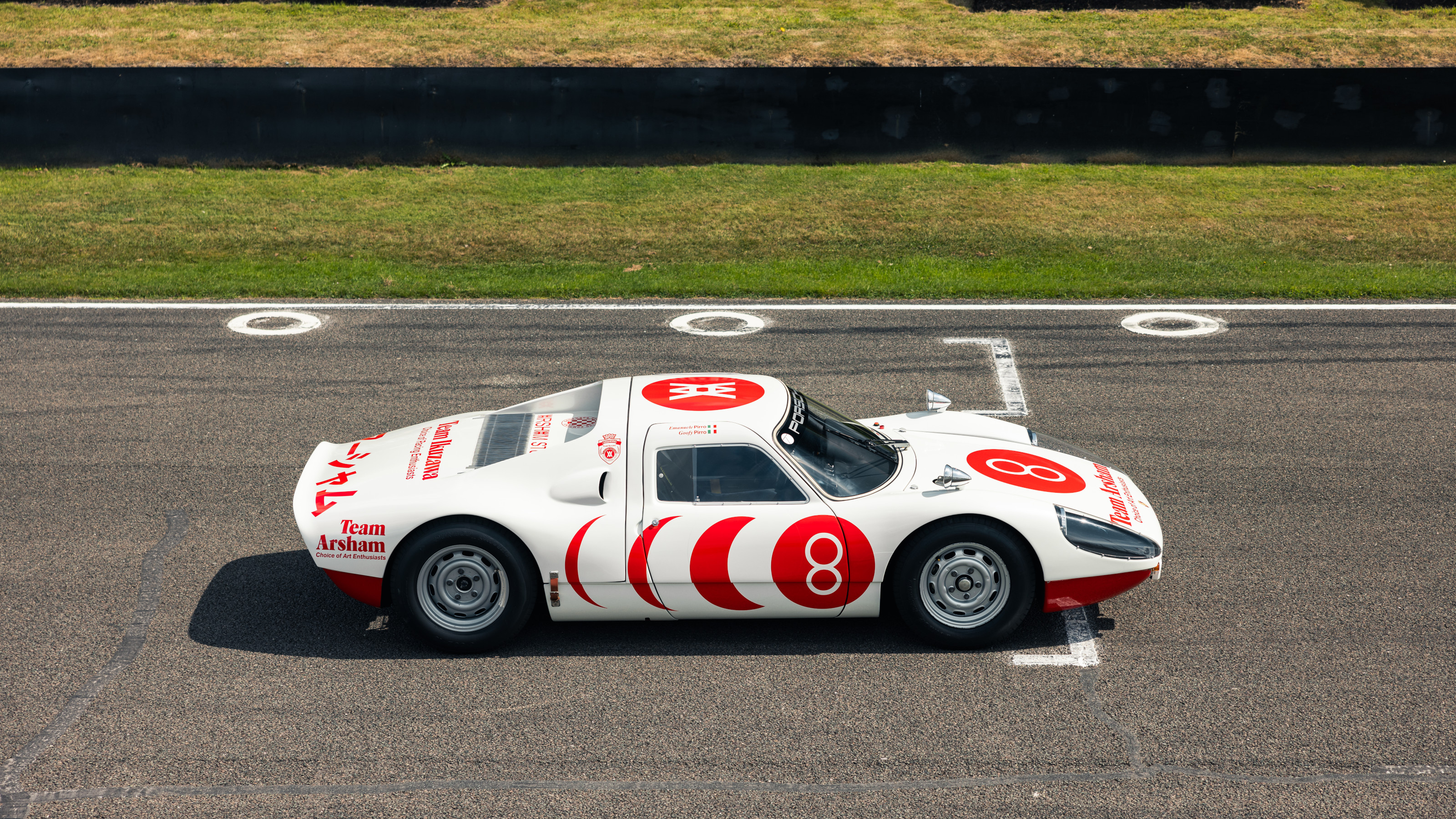 Team Ikuzawa brings the art of Daniel Arsham to motorsport
Team Ikuzawa brings the art of Daniel Arsham to motorsportCreative director Mai Ikuzawa has overseen a new capsule clothing collection, a collaboration with artist Daniel Arsham that also honours her racing driver father Tetsu Ikuzawa
By Josh Sims
-
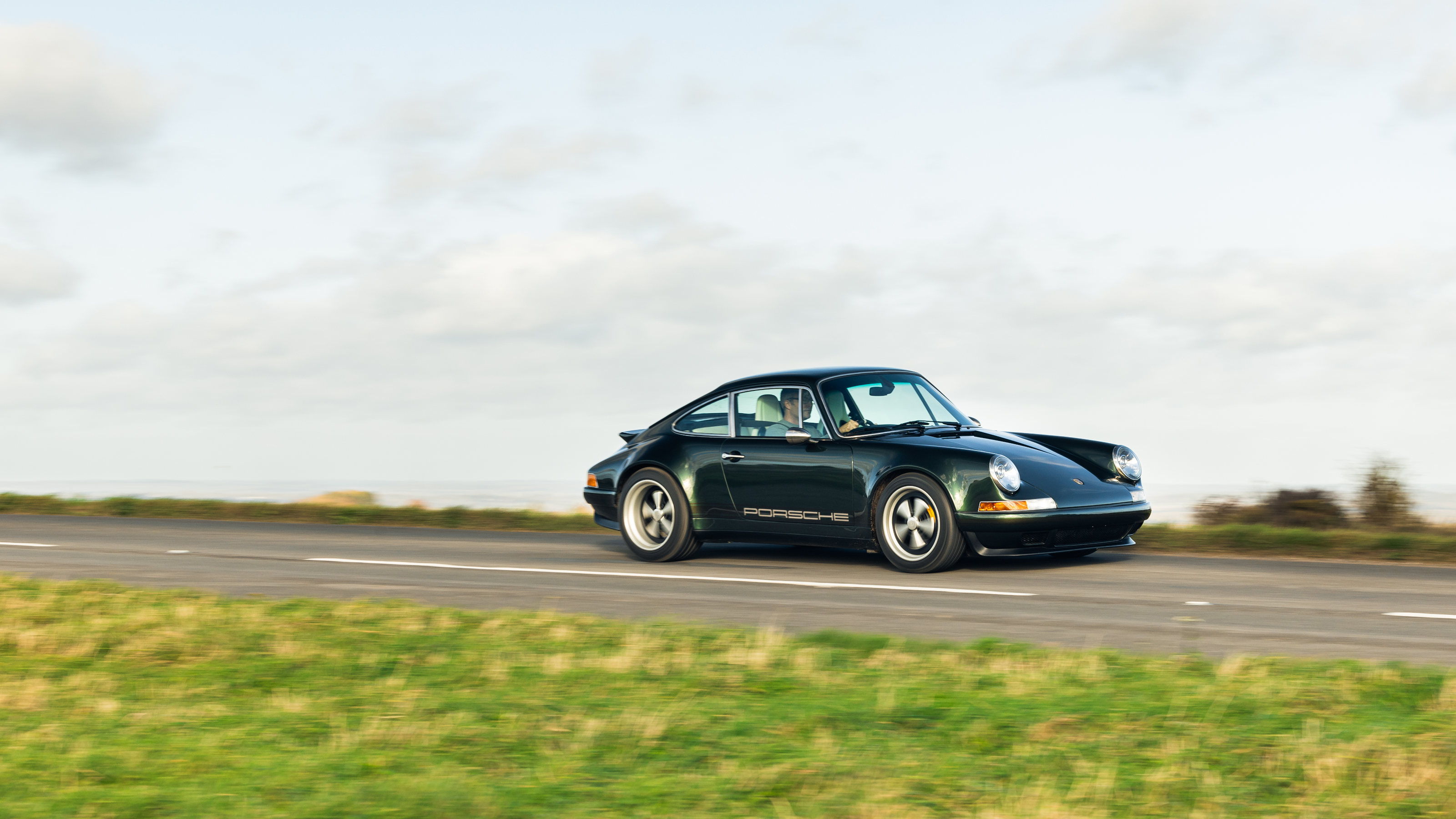 We sample the latest sports car from bespoke British manufacturer Theon Design
We sample the latest sports car from bespoke British manufacturer Theon DesignWith the GBR002, Theon Design have transformed a classic Porsche into a low-key bespoke supercar, uprating and enhancing the iconic 964 model to exacting customer specifications
By Jonathan Bell
-
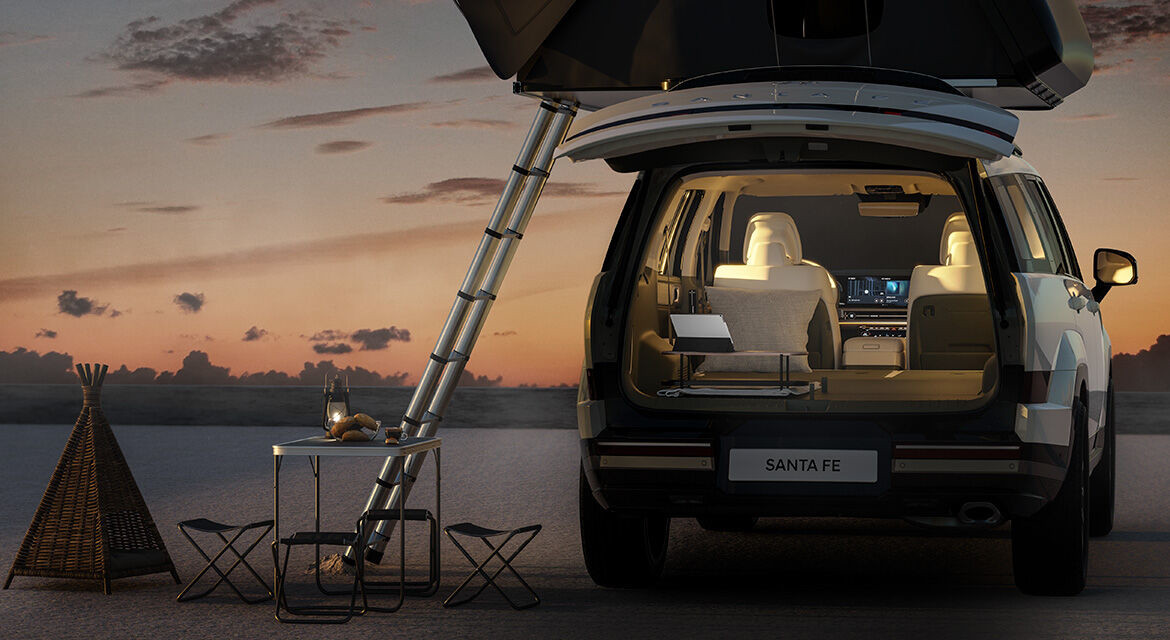 New-generation car camping and roof tents for luxury-loving adventurers
New-generation car camping and roof tents for luxury-loving adventurersCar camping is having a moment. While Hyundai and Porsche can get you kitted up, we explore other options
By Jonathan Bell
-
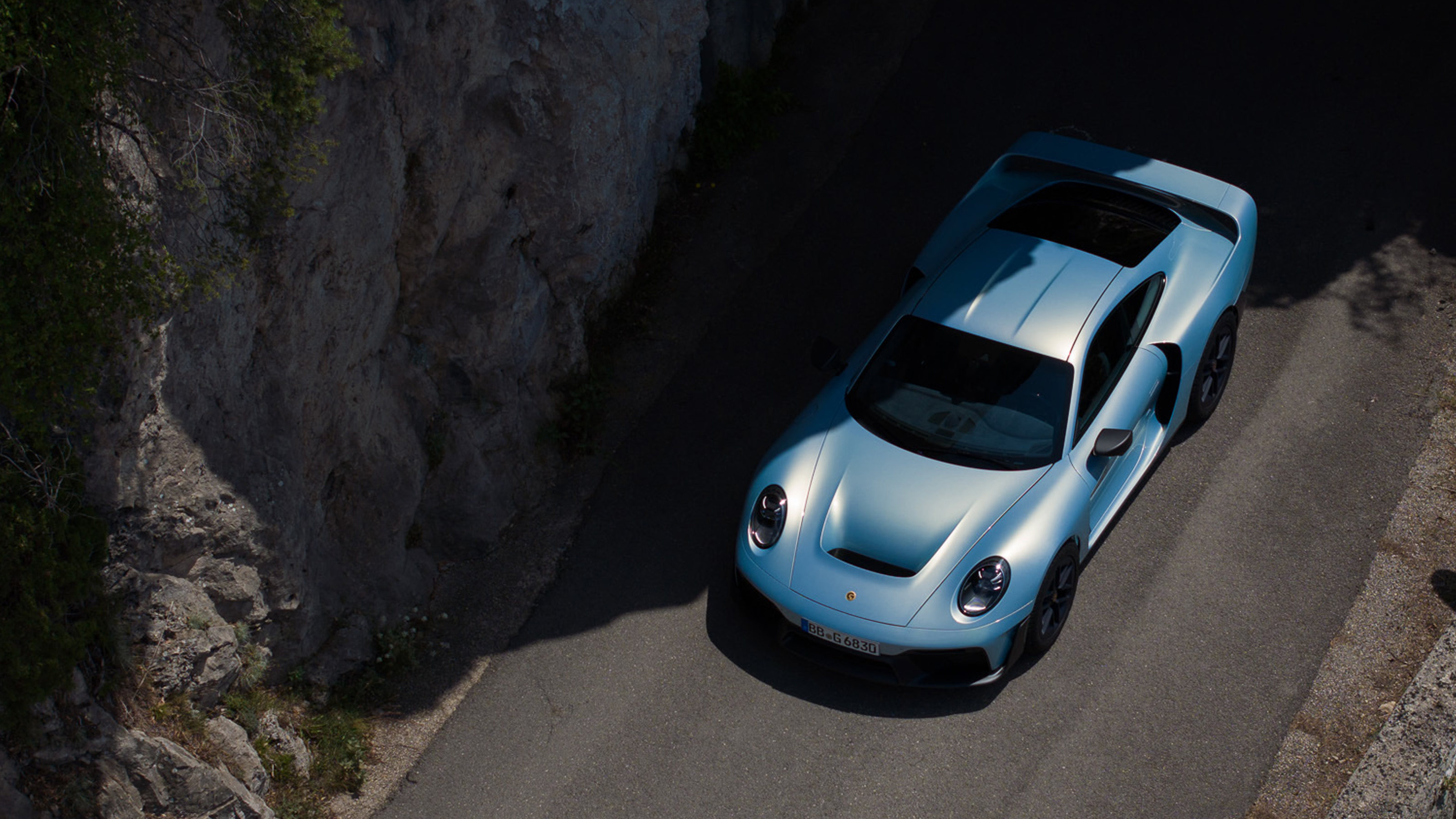 The Marsien is an all-terrain supercar that takes the Porsche aesthetic into new territories
The Marsien is an all-terrain supercar that takes the Porsche aesthetic into new territoriesThe Marsien by Marc Philipp Gemballa is a limited edition off-roading supercar inspired by the golden era of rallying Porsches
By Jonathan Bell
-
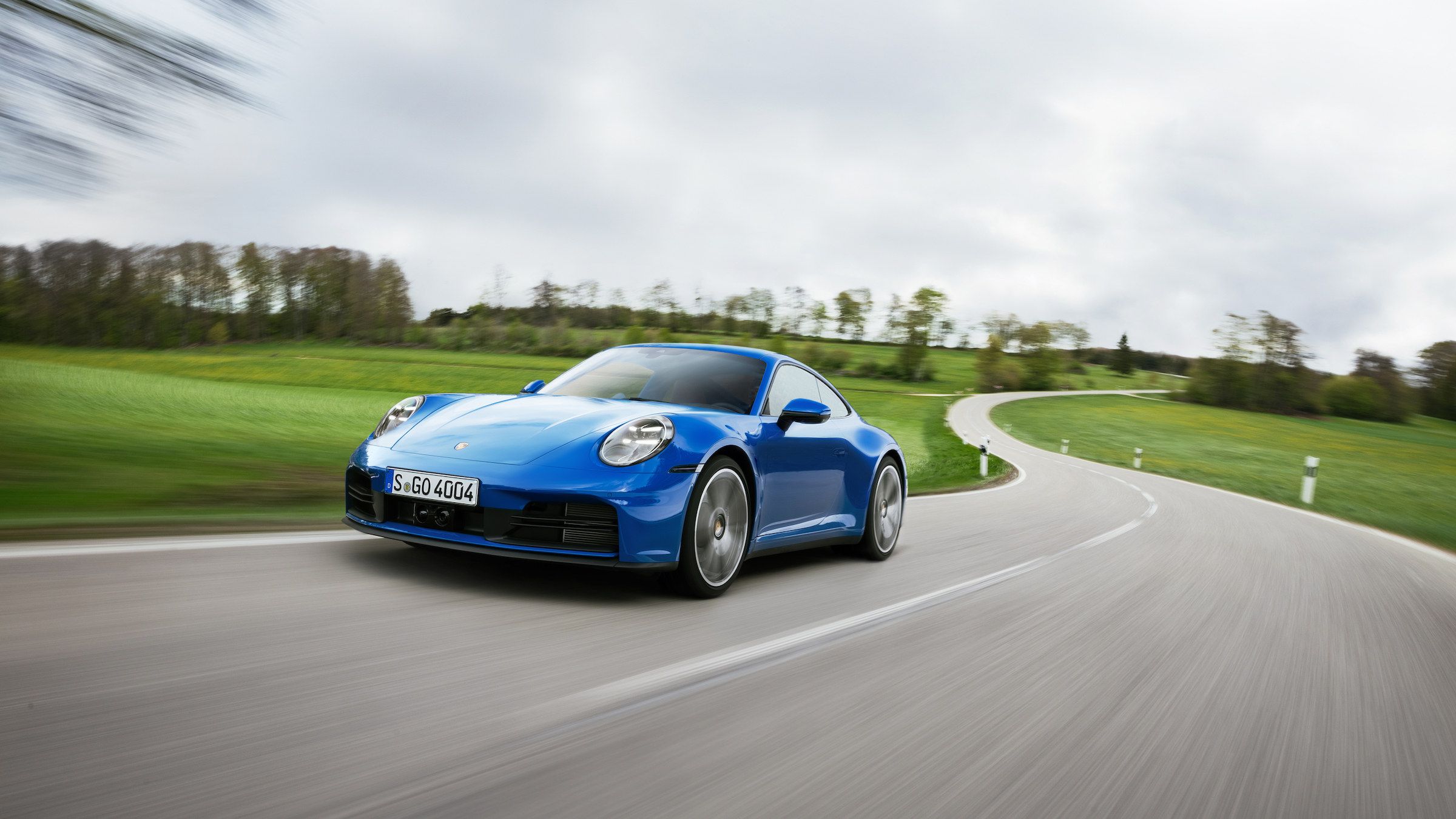 Driven: the electrically enhanced Porsche 911 raises the bar for the sports car stalwart
Driven: the electrically enhanced Porsche 911 raises the bar for the sports car stalwartThe new Porsche 911 Carrera GTS marks the debut of Porsche’s T-Hybrid system, boosting performance and efficiency. We get behind the wheel
By Rory FH Smith